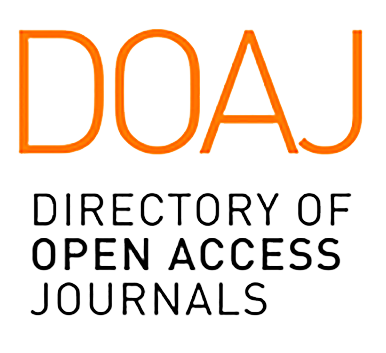Freedom of Opinion After the Constitutional Court Ruled the Fake News Dissemination Crime Unconstitutional
DOI:
https://doi.org/10.15294/jllr.v5i3.6752Keywords:
Expression of Opinion, Crime, Fake News, The Constitutional Court, IndonesiaAbstract
Decree of the Constitutional Court No. 78/PUU-XX1/2023 protects freedom of opinion in a public place. That decree rules Article 14 and Article 15 Law No. 1 of 1946 on the Fake News Dissemination Crime unconstitutional. However, does this decree of the Constitutional Court really protect the people’s right to freedom of opinion in a public place? This study is aimed at analyzing freedom of opinion in Indonesia after the decree of the Constitutional Court No. 78/PUU-XX1/2023 was issued. The document study employing a case approach and a law approach shows us that there are still things posing a threat to freedom of expression in a public place. Article 263 and Article 264 Law No. 1 of 2023 on the Penal Code and Article 28 (3) Jo. 45A (3) Law No. 1 of 2024 on the Second Amendment to Law on Electronic Information and Transactions still criminalize a fake news dissemination act. Decree of the Constitutional Court No. 78/PUU-XX1/2023 does not directly rescind the crime in those two laws. Furthermore, the provisions in the content moderation as stipulated in Law on Electronic Information and Transactions may present an obstacle to freedom of opinion in a public place. In the end, we need to request the Constitutional Court to judicially review the other laws on the fake news dissemination crime and to improve the provisions regulating the content moderation.
References
Abra, Emy Hajar, and Rofi Wahanisa, “The Constitutional Court Ultra Petita As a Protection Form of Economic Rights in Pancasila Justice,” Journal of Indonesian Legal Studies 5, no. 1 (2020): 187–224, https://doi.org/10.15294/jils.v5i1.35965.
Armiwulan, Hesti. “The Limitation of Freedom of Expression by State as a Crime during Pandemic Covid-19 in Indonesia,” International Journal of Criminal Justice Sciences 17, no. 2 (2022): 101–13, https://doi.org/10.5281/zenodo.4756113.
Barendt, Eric. Freedom of Speech (New York: Oxford Univeristy Press, 2005).
Bhat, P. Ishwara. Idea and Methods of Legal Research, Idea and Methods of Legal Research (New Delhi: Oxford Univeristy Press, 2020), https://doi.org/10.1093/oso/9780199493098.001.0001.
Bonotti, Matteo, and Jonathan Seglow, “Freedom of Speech: A Relational Defence,” Philosophy and Social Criticism 48, no. 4 (2022): 515–29, https://doi.org/10.1177/01914537211073782.
Butt, Simon, and Prayekti Murharjanti, “What Constitutes Compliance? Legislative Responses to Constitutional Court Decisions in Indonesia,” International Journal of Constitutional Law 20, no. 1 (2022): 428–53, https://doi.org/https://doi.org/10.1093/icon/moac014.
Coughlan, S. “Why De Minimis Should Not Be a Defence,” Queens Law Journal 44, no. 2 (2019): 262–83.
Elias, Stephen. Legal Research How to Find & Understand the Law, 19th ed. (Berkeley, California: Nolo, 2019).
Feinberg, Joel. The Moral Limits of the Criminal Law Volume 1: Harm to Others, The Moral Limits of the Criminal Law Volume 1: Harm to Others (Oxford: Oxford University Press, 2003), https://doi.org/10.1093/0195059239.001.0001.
Fernando, Zico Junius, et al., “The Freedom of Expression in Indonesia,” Cogent Social Sciences 8, no. 1 (2022): 1–11, https://doi.org/10.1080/23311886.2022.2103944.zi.
Han, Kirsten. “Big Brother’s Regional Ripple Effect: Singapore’s Recent ‘Fake News’ Law Which Gives Ministers the Right to Ban Content They Do Not like, May Encourage Other Regimes in South-East Asia to Follow Suit,” Index on Censorship 48, no. 2 (2019): 67–69, https://doi.org/10.1177/0306422019858296.
Ibrahim, Johnny. Teori Dan Metodologi Penelitian Hukum Normatif (Malang: MNC Publishing, 2022). Kristiawanto, Memahami Penelitian Hukum Normatif (Jakarta: Prenada Media, 2022). p. 29.
Keiler, Johannes. Actus Reus and Participation in European Criminal Law (Cambridge: Intersentia, 2013), https://doi.org/10.26481/dis.20130412jk.
Krotoszynski Jr, Ronald J. "The Clear and Present Dangers of the Clear and Present Danger Test: Schenck and Abrams Revisited." SMU Law Review 72, no. 3 (2019): 415-440. p. 423.
Mill, John Stuart. On Liberty (New York: G&D Media, 2020).
Milton, John. Areopagitica (Chicago: Independently published, 2020).
Moscon, Valentina. “Free Circulation of Information and Online Intermediaries – Replacing One ‘Value Gap’ with Another,” IIC International Review of Intellectual Property and Competition Law 51, no. 8 (2020): 977–82, https://doi.org/10.1007/s40319-020-00982-3.
Neuman, William Lawrence. Social Research: Qualitative and Quantitative Approaches., Seventh Ed (Edinburgh:Pearson Education Limited, 2020), https://doi.org/10.1234/12345678.
Placani, Adriana. “Prescriptive Rules in Legal Theory,” Public Governance, Administration and Finances Law Review 8, no. 2 (2023): 2–12, https://doi.org/10.53116/pgaflr.6827.
Prahassacitta, Vidya, and Harikristuti Harkrisnowo, “Criminal Disinformation in Relation to the Freedom of Expression in Indonesia A Critical Study,” Comparative Law Review 27, no. Desember (2021): 123–65, https://doi.org/https://doi.org/10.12775/CLR.2021.005.
Prahassacitta, Vidya, and Harkristuti Harkrisnowo, “The Criminalization Of Fake News: Critique on Indonesia’s New Penal Code,” Criminal Law Forum 35 (2024): 83–120, https://doi.org/10.1007/s10609-024-09478-y.
Prahassacitta, Vidya. “Kriminalisasi Penyebaran Berita Bohong di Indonesia”. Dissertation. (Depok: Universitas Indonesia, 2023).
Prahassacitta, Vidya. Kriminalisasi Penyebaran Berita Bohong Di Indonesia: Batas Intervensi Hukum Pidana Terhadap Kebebasan Berekspresi Di Ruang Publik (Yogyakarta: Nas Media Pustaka, 2023).
Putri, Intan Permata, Mohammad Mahrus Ali, and Pusat, “Karakteristik Judicial Order Dalam Putusan Mahkamah Konstitusi Dengan Amar Tidak Dapat Diterima Characteristics of Judicial Order in with Unacceptable Verdict,” Jurnal Konstitusi 16, no. 4 (2019): 883–903, https://doi.org/DOI: https://doi.org/10.31078/jk16410.
Rahman, Rofi Aulia, and Shu Mei Tang, “Fake News and Internet Shutdowns in Indonesia: Symptoms of Failure to Uphold Democracy,” Constitutional Review 8, no. 1 (2022): 151–83, https://doi.org/10.31078/consrev816.
Republic of Indonesia. Decree of the Constitutional Court of the Republic of Indonesia No. 78/PUU-XXI/2023.
Republic of Indonesia. Decree of the Minister of Communication and Informatics of the Republic of Indonesia Number 5 of 2020 on the Electronic System Operator for the Private Scope.
Santoso, Topo. Principles of Indonesian Criminal Law (Studies in International and Comparative Criminal Law), Angewandte Chemie International Edition, 6(11), 951–952., 1st ed. (Oxford: Hart Publishing, 2023), https://doi.org/http://dx.doi.org/10.5040/9781509950959.
Smith, Robert Brian, Mark Perry, and Nucharee Nuchkoom Smith, “‘Fake News’ in Asean: Legislative Responses,” Journal of ASEAN Studies 9, no. 2 (2021): 117–37, https://doi.org/10.21512/JAS.V9I2.7506.
Smith, Robert. Harmonisation of Anti-Fake News Legisation in ASEAN (Eastwood, New South Wales, Australia: AEC Education & Training Pty Ltd, 2021).
Stepien, Mateusz. “Using Case Studies for Research on Judicial Opinions. Some Preliminary Insights,” Law and Method, no. November (2020): 1–20, https://doi.org/10.5553/rem/.000045.
Supanto, Supanto et al., “Regulating Fake News and Hoaxes: A Comparative Analysis of Indonesia and Malaysia,” Journal of Human Rights, Culture and Legal System 3, no. 3 (2023): 656–77, https://doi.org/10.53955/jhcls.v3i3.113.
Tan, David, and Jessica Sijie Teng, “Fake News, Free Speech and Finding Constitutional Congruence,” Singapore Academy of Law Journal 32, no. 1 (2020): 207–48.
Tight, Malcolm. Documentary Research in the Social Sciences (London: SAGE Publications Ltd, 2019).
Verdict of East Jakarta District Court No. 202/Pid.Sus/2023/PN Jkt.Tim of 2023 acquitted the defendant Haris Azhar of all charges.
Verdict of East Jakarta District Court No. 203/Pid.Sus/2023/PN Jkt.Tim of 2023 acquitted the defendant Fatiah Maulidiyanty of all charges.
Zedner, Lucia, and Andrew Ashworth, “The Rise and Restraint of the Preventive State,” Annual Review of Criminology 2, no. September 2018 (2019): 429–50, https://doi.org/10.1146/annurev-criminol-011518-024526.
Downloads
Published
Article ID
6752Issue
Section
License
Copyright (c) 2024 Vidya Prahassacitta (Author)

This work is licensed under a Creative Commons Attribution-NonCommercial-ShareAlike 4.0 International License.
All writings published in this journal are personal views of the authors and do not represent the views of this journal and the author's affiliated institutions. Author(s) retain copyrights under a Creative Commons Attribution-NonCommercial-ShareAlike 4.0 International (CC BY-NC-SA 4.0).









